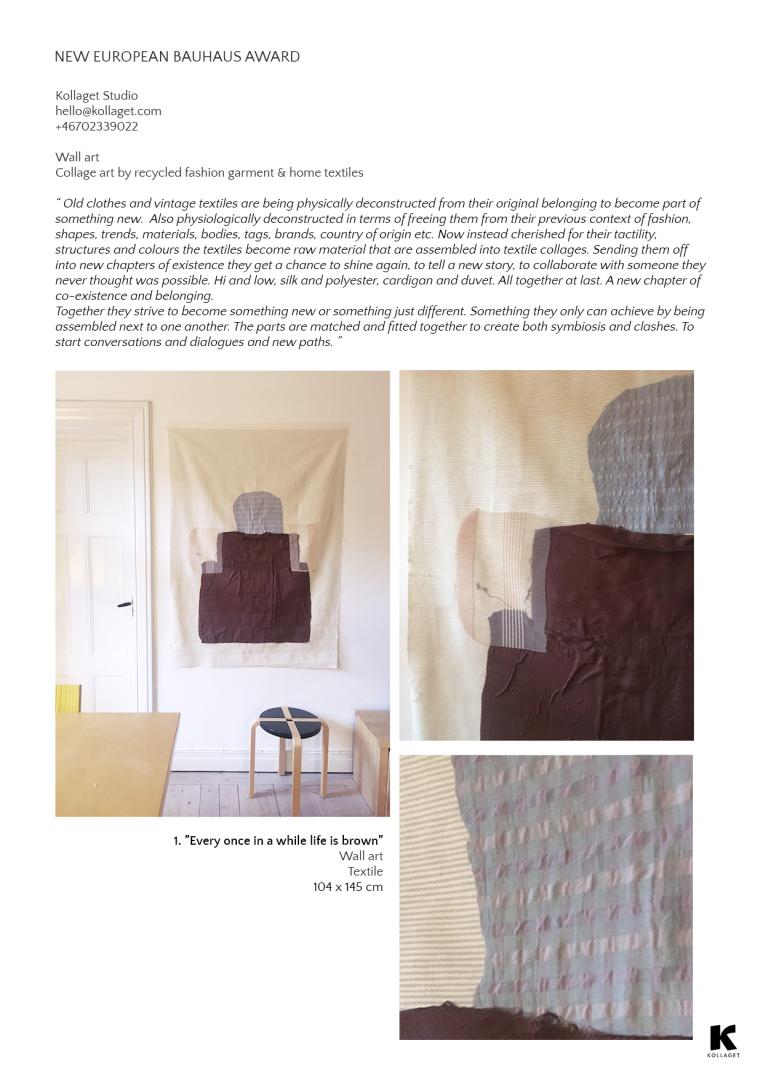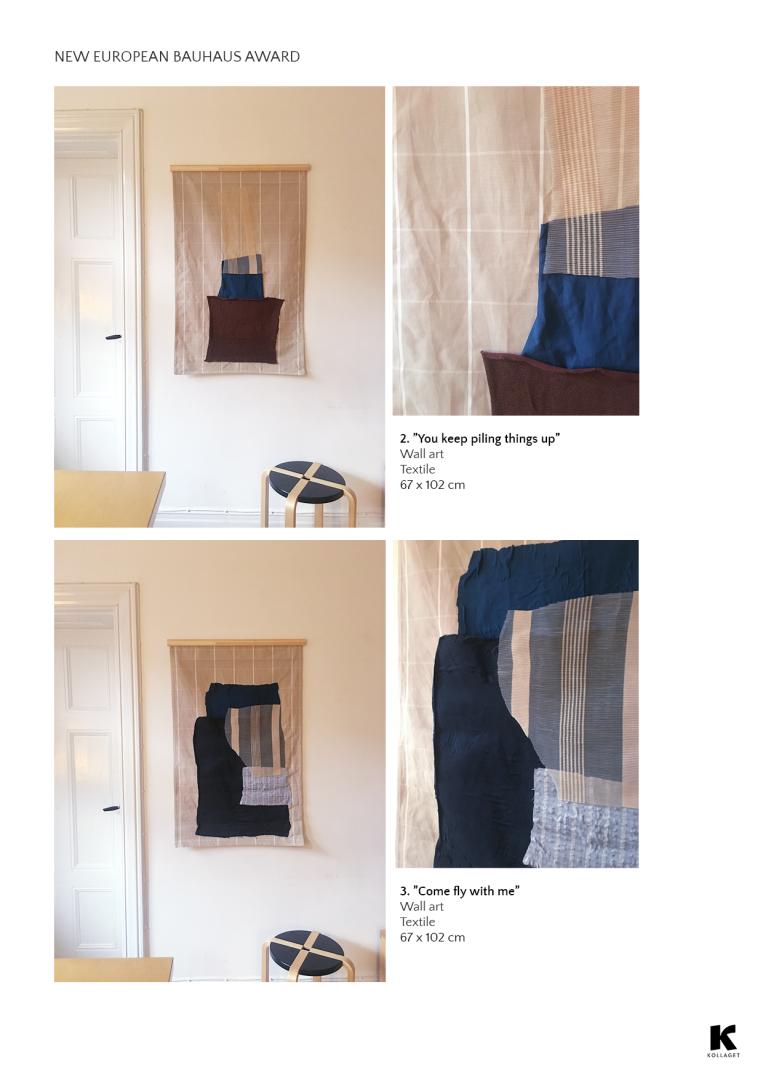You keep piling things up
Basic information
Project Title
Full project title
Category
Project Description
Sending them off into new chapters of existence they get a chance to shine again, to tell a new story, to collaborate with someone they never thought was possible. A new chapter of co-existence and belonging. Together they strive to become something new or something just different. Something they only can achieve by being assembled next to one another. The parts are matched and fitted together to create both symbiosis and clashes. To start conversations, dialogues and new paths.
Geographical Scope
Project Region
Urban or rural issues
Physical or other transformations
EU Programme or fund
Which funds
Description of the project
Summary
Wall art made of recycled fashion garment & home textiles
Old clothes and vintage textiles are being physically deconstructed from their original belonging to become part of something new. Also physiologically deconstructed in terms of freeing them from their previous context of fashion, shapes, trends, materials, bodies, tags, brands, country of origin etc. Now instead cherished for their tactility, structures and colours the textiles become raw material that are assembled into textile collages. Sending them off into new chapters of existence they get a chance to shine again, to tell a new story, to collaborate with someone they never thought was possible. Hi and low, silk and polyester, cardigan and duvet. All together at last. A new chapter of co-existence and belonging. Together they strive to become something new or something just different. Something they only can achieve by being assembled next to one another. The parts are matched and fitted together to create both symbiosis and clashes. To start conversations, dialogues and new paths.
Key objectives for sustainability
In the vintage scouting process, we find a lot of disregarded textiles in beautiful qualities. Not everything is good to recycle in the loops of fashion industry. Recycling textiles also demands a lot of energy. For the wall art collection they turned into new raw material resources, without changing the original textures. Keeping on display folds, stiches and wonderful craftmanship details as intentional parts of artwork&experience. Old clothes and vintage textiles are being physically deconstructed from their original belonging to become part of something new.
Key objectives for aesthetics and quality
Physiologically deconstructed in terms of freeing them from their previous context of fashion, shapes, trends, materials, bodies, tags, brands, country of origin etc. Now instead cherished for their tactility, structures and colours the textiles become raw material that are assembled into textile collages. Sending them off into new chapters of existence they get a chance to shine again, to tell a new story, to collaborate with someone they never thought was possible.
Key objectives for inclusion
We wanted to show that origin is not important. New chapters of co-existence and belonging can be made. The parts are matched and fitted together to create both symbiosis and clashes. To start conversations, dialogues and new paths.
Results in relation to category
We are repurposing&recycling textiles with minimum energy. We are creating beautiful new art and purposes of what has been considered waste.
How Citizens benefit
We use old and recycled textiles from organizations that provide charity. All garments has been used in some way and there is a connection to other citizens in a hidden and not important way. Bias is broken.
Physical or other transformations
Innovative character
The tactility, structures and colours of the recycled textiles create the innovative textile wall art.
Learning transferred to other parties
To engage and make possible for each citizen to create a better sustainable society- we need to relearn what is waste and what is resourche. We need to rethink on how we loop materials in best way. Our project and art inspire peaple to take better care of material in an innovative way, without being blinded by bias.



